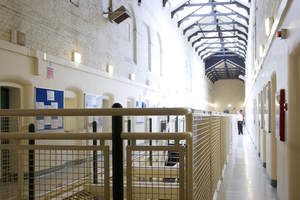Coronavirus recovery in prisons and probation
Prisons and Probation Minister Lucy Frazer has today (2 June 2020) set out how those services will start to recover from the restrictions imposed in response to coronavirus.

In March, temporary restrictions were put in place to minimise movements between jails and reduce face-to-face probation meetings to avoid thousands of offenders and staff becoming infected with the virus. Since then, strong further measures have been implemented, including the early release of low-risk offenders, temporary expansion of the prison estate, and work to reduce the number of those held on remand.
This action has helped to reduce the prison population, allowing jails to implement ‘compartmentalisation’, meaning staff have isolated those prisoners with symptoms, shielded the vulnerable and quarantined new arrivals.
As a result of the success of those measures, which have helped to contain the spread of the virus and limit deaths, consideration can now be given to how these restrictions can be cautiously rolled back over the coming weeks and months. This will happen within national frameworks for prisons and probation which have been published today.
Prisons and Probation Minister, Lucy Frazer QC MP, said:
As a result of the strong measures we introduced, lives have been saved and the NHS is being protected from the impact of widespread local outbreaks.
I want to first pay tribute to the hard-working staff across the country who have enabled this to take place. They have been striving tirelessly to make sure those in their care are safe and the public is protected.
The decision to introduce restricted regimes across our jails was not taken lightly, and I want to acknowledge the impact of that.
While safety must remain our paramount concern, the sacrifices of recent months mean we are now in position to consider how to cautiously restart aspects of daily prison life, such as social visits, education and work – with adaptations where necessary to ensure safety.
This cannot happen in a uniform way across all prisons and decisions will take account of individual circumstances. Inevitably this will mean some prisons move faster than others. The national guidance we are publishing today will allow governors to make decisions in a consistent way.
In probation, the restrictions have been necessary for the safety of staff and offenders, while ensuring the public is protected and the monitoring of high-risk offenders remains tough. However, we will now look to resume certain activities, such as gradual increases in office visits, unpaid work and accredited programmes. Like in prisons, this will only happen with appropriate safety measures in place and when local circumstances make it appropriate to do so.
This will not be a straightforward return to normality and local restrictions may need to be re-imposed if outbreaks occur.
We are only able to consider these steps due to the extremely careful handling of the initial phase of the pandemic. This is a direct result of the extraordinary efforts of our staff and the resilience of all those affected.
Her Majesty’s Prison and Probation Service national frameworks can be read on GOV.UK: